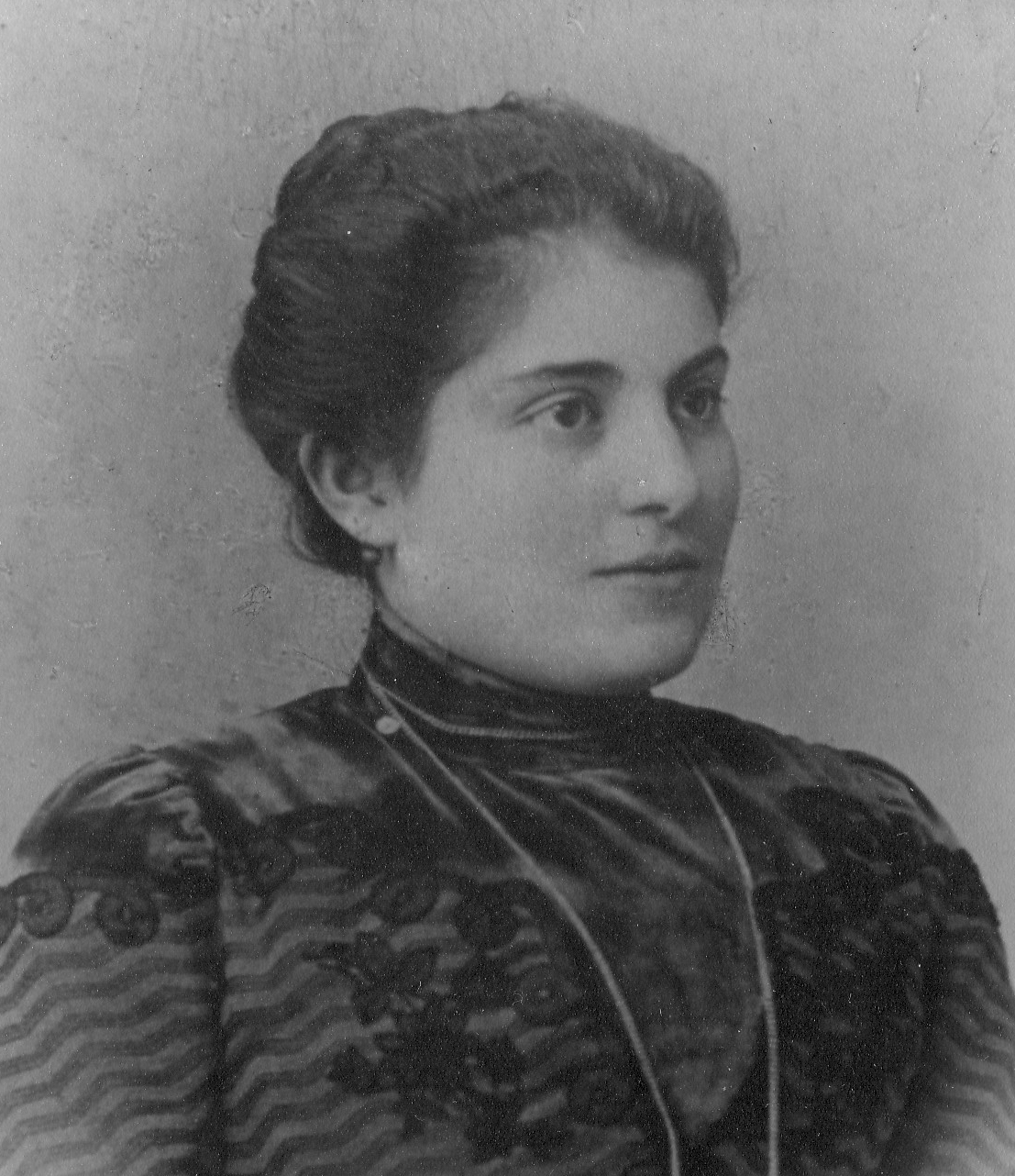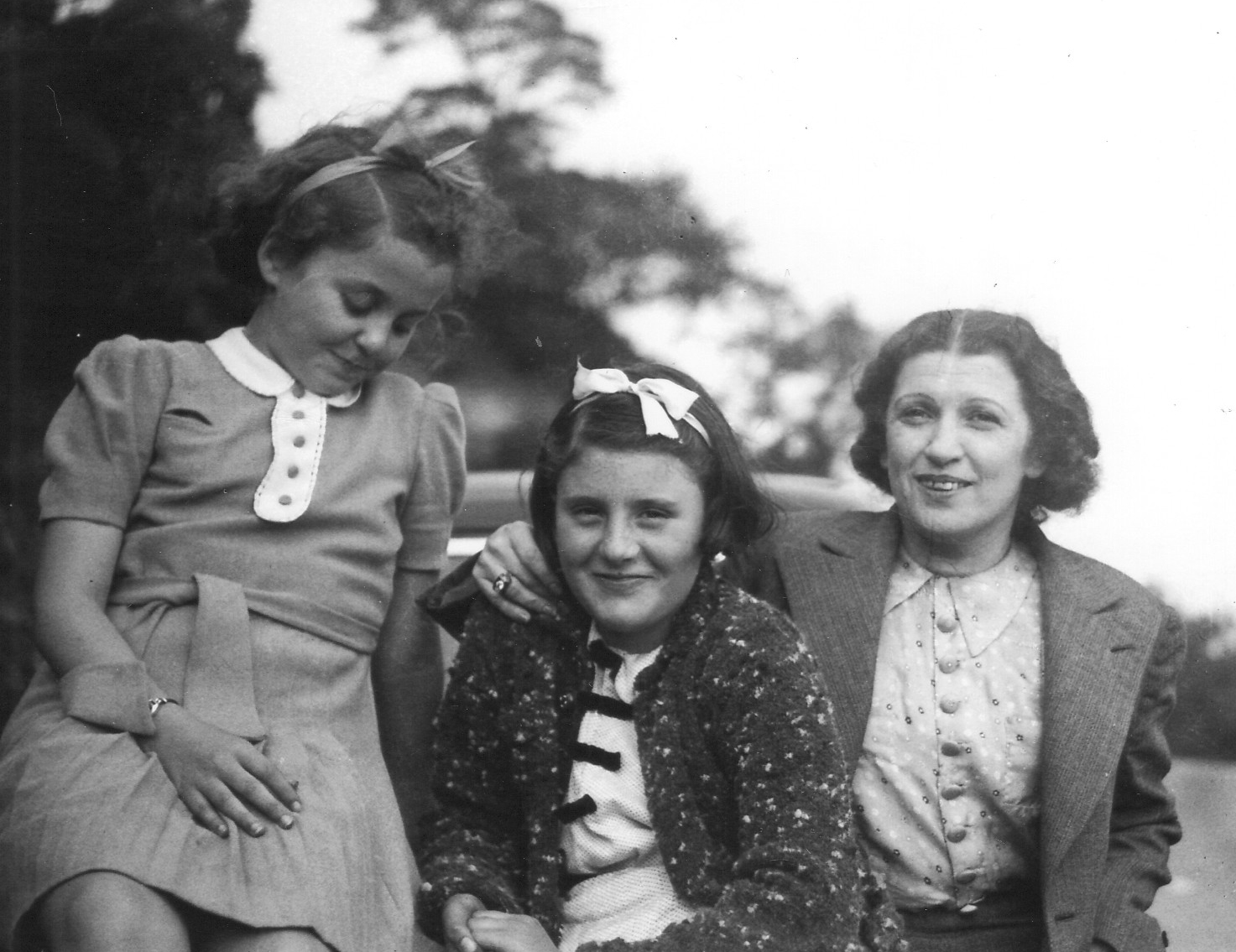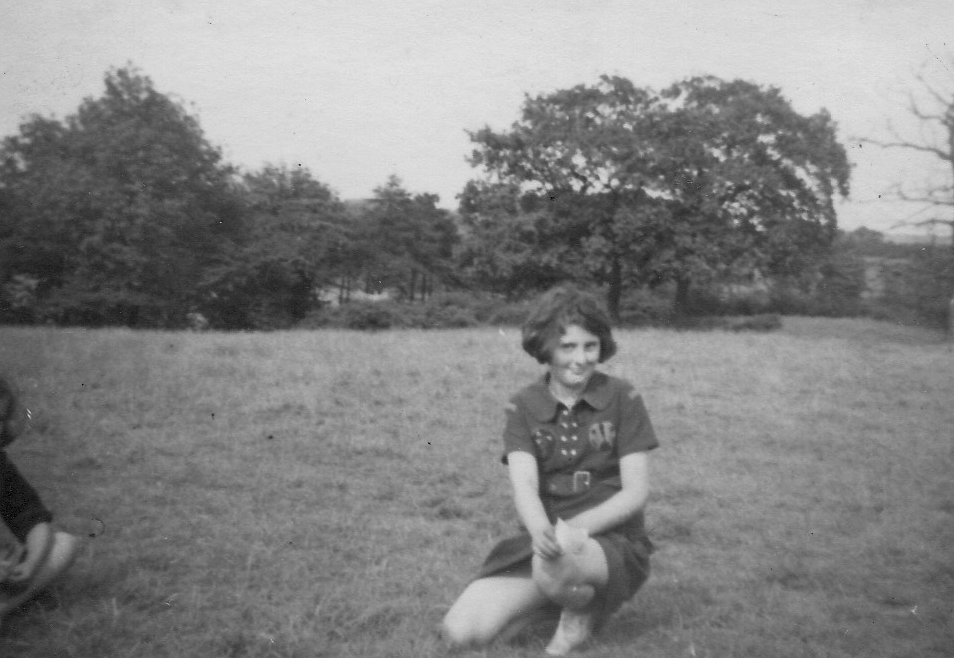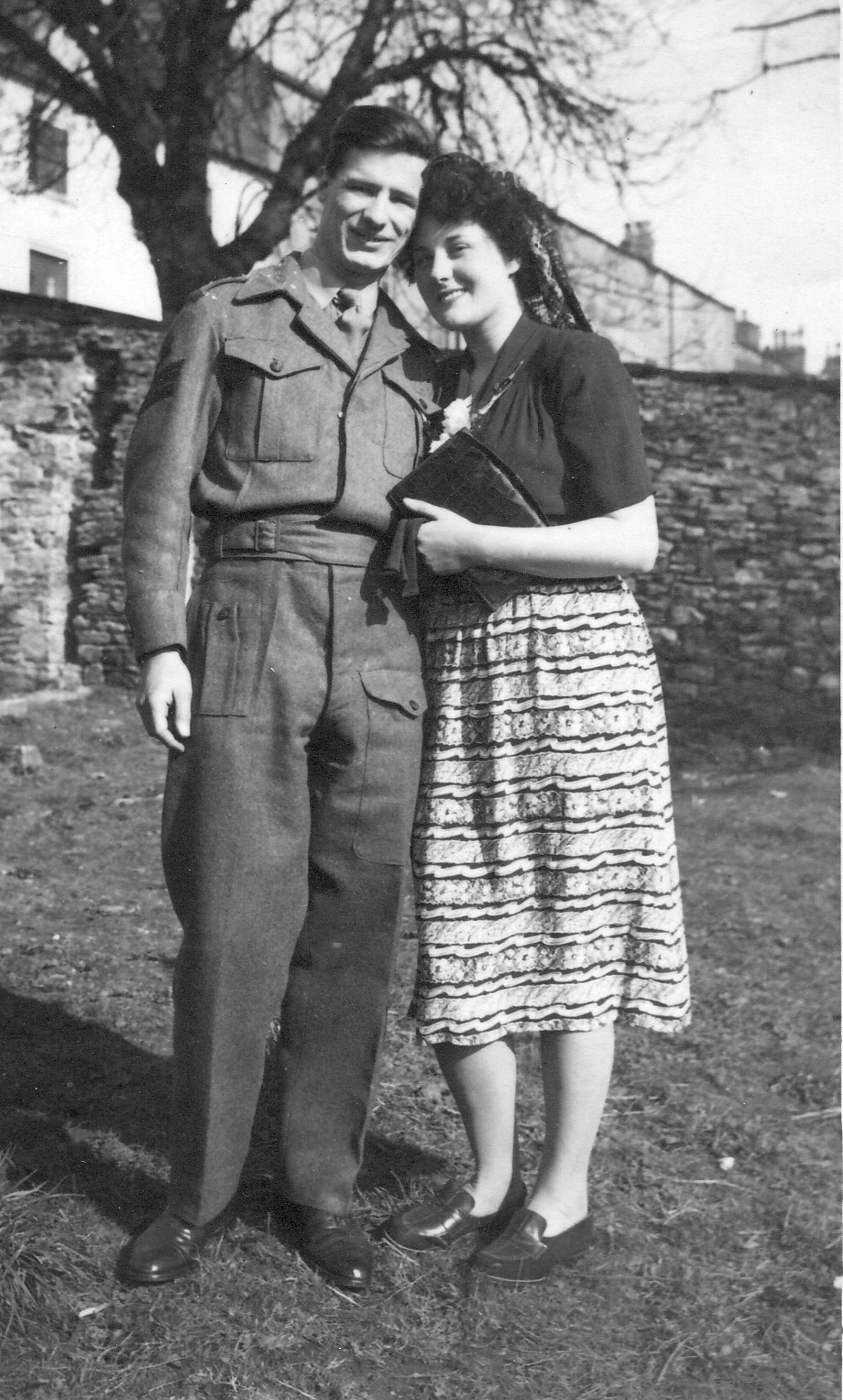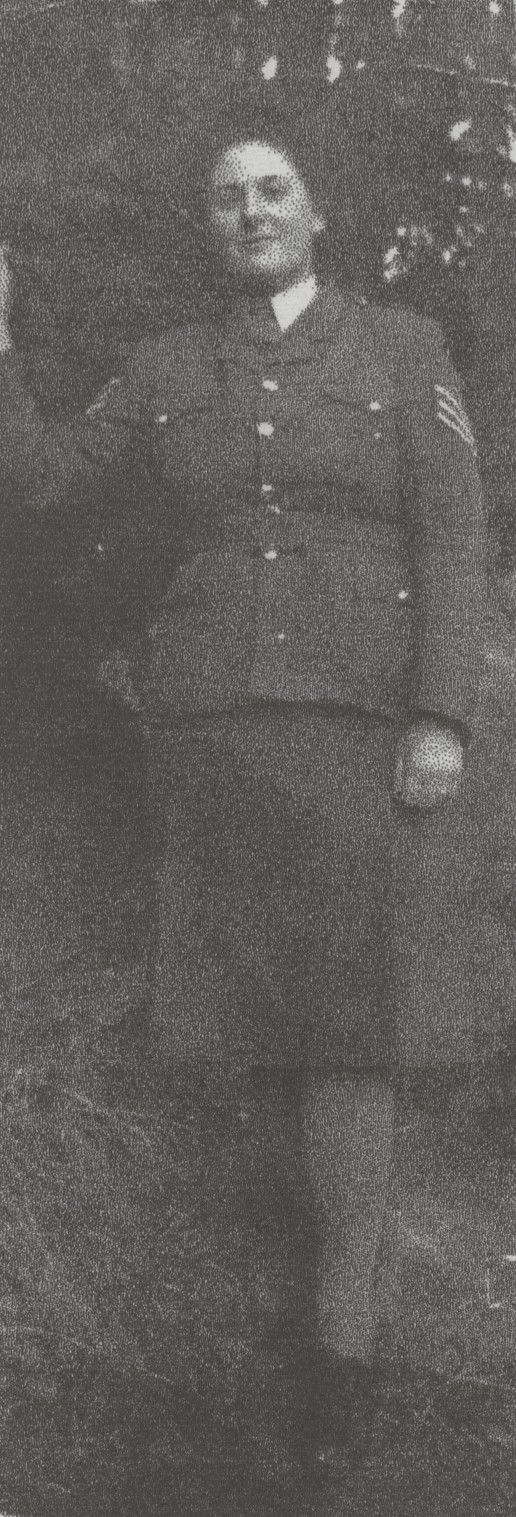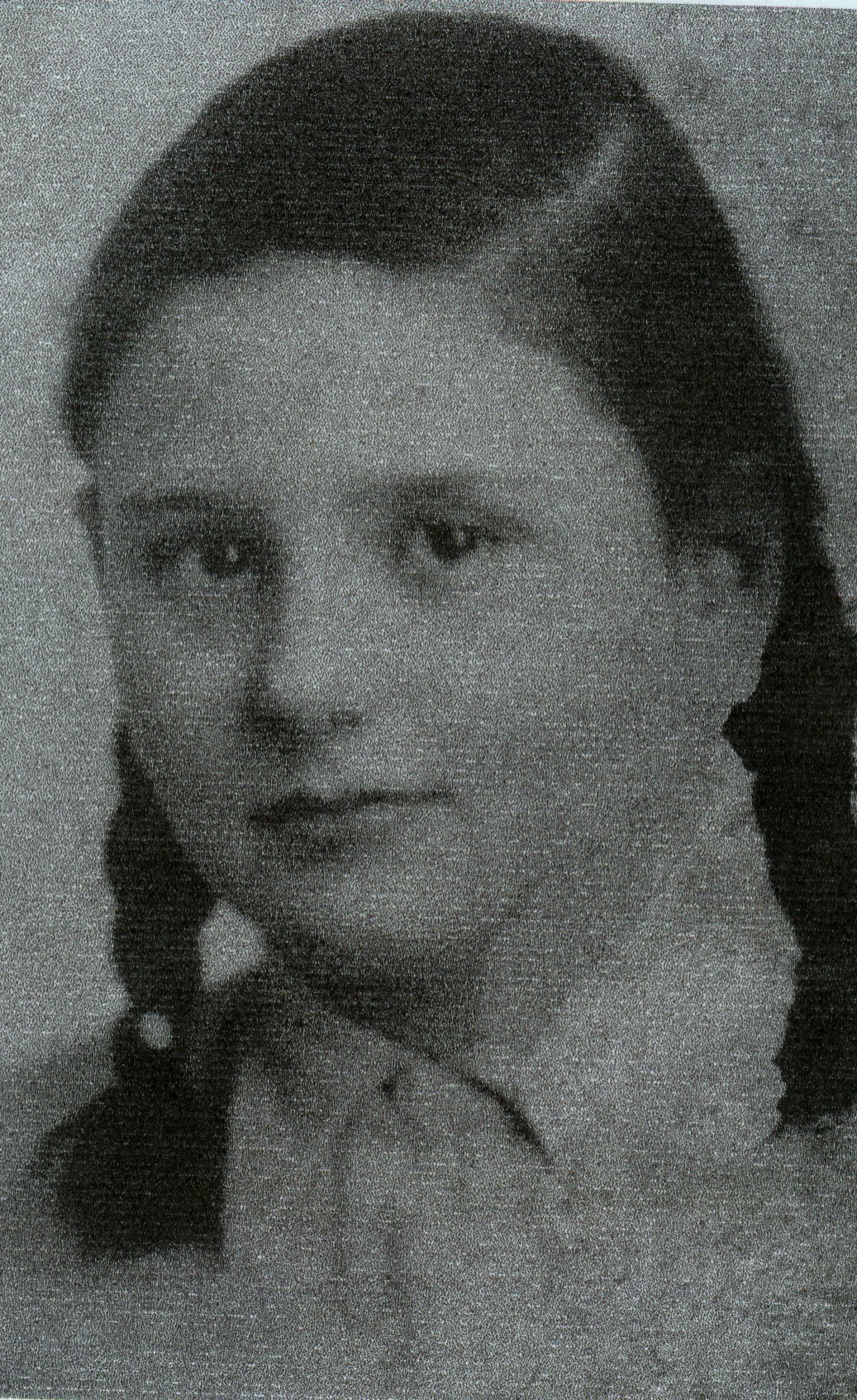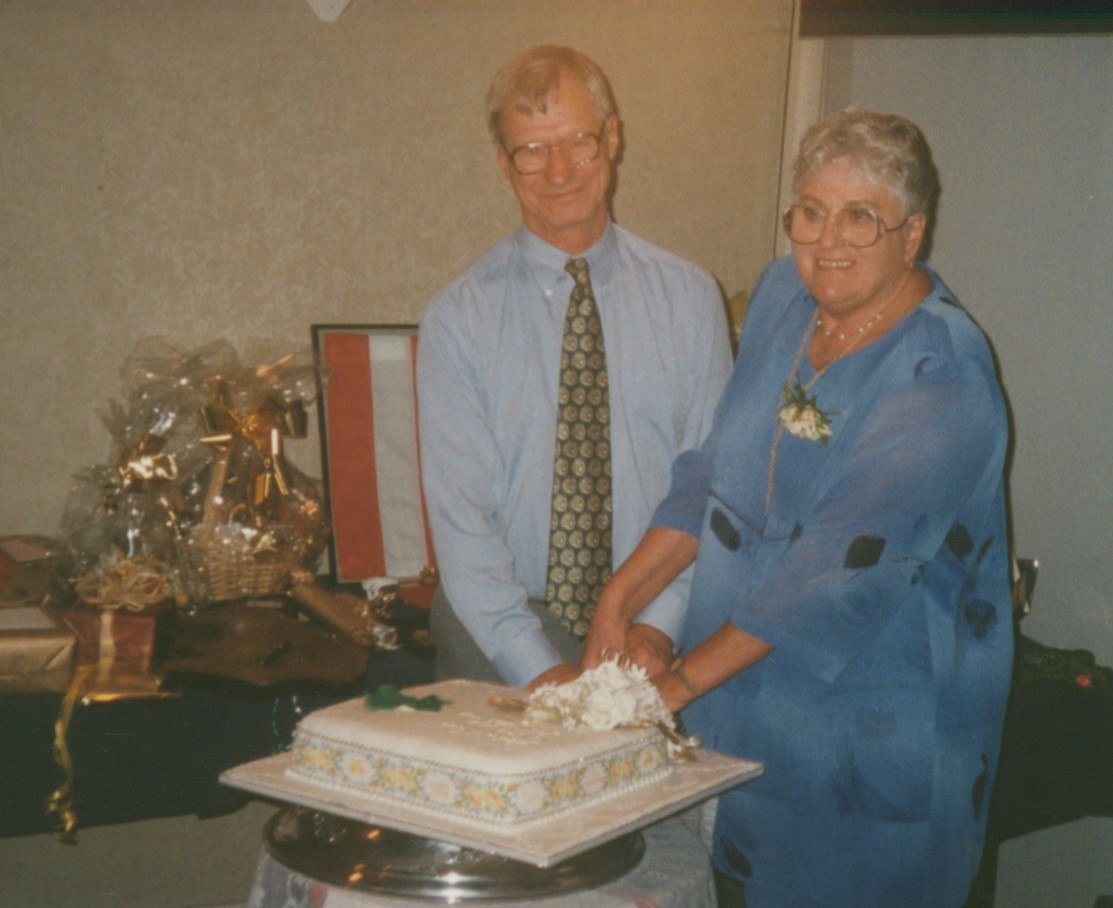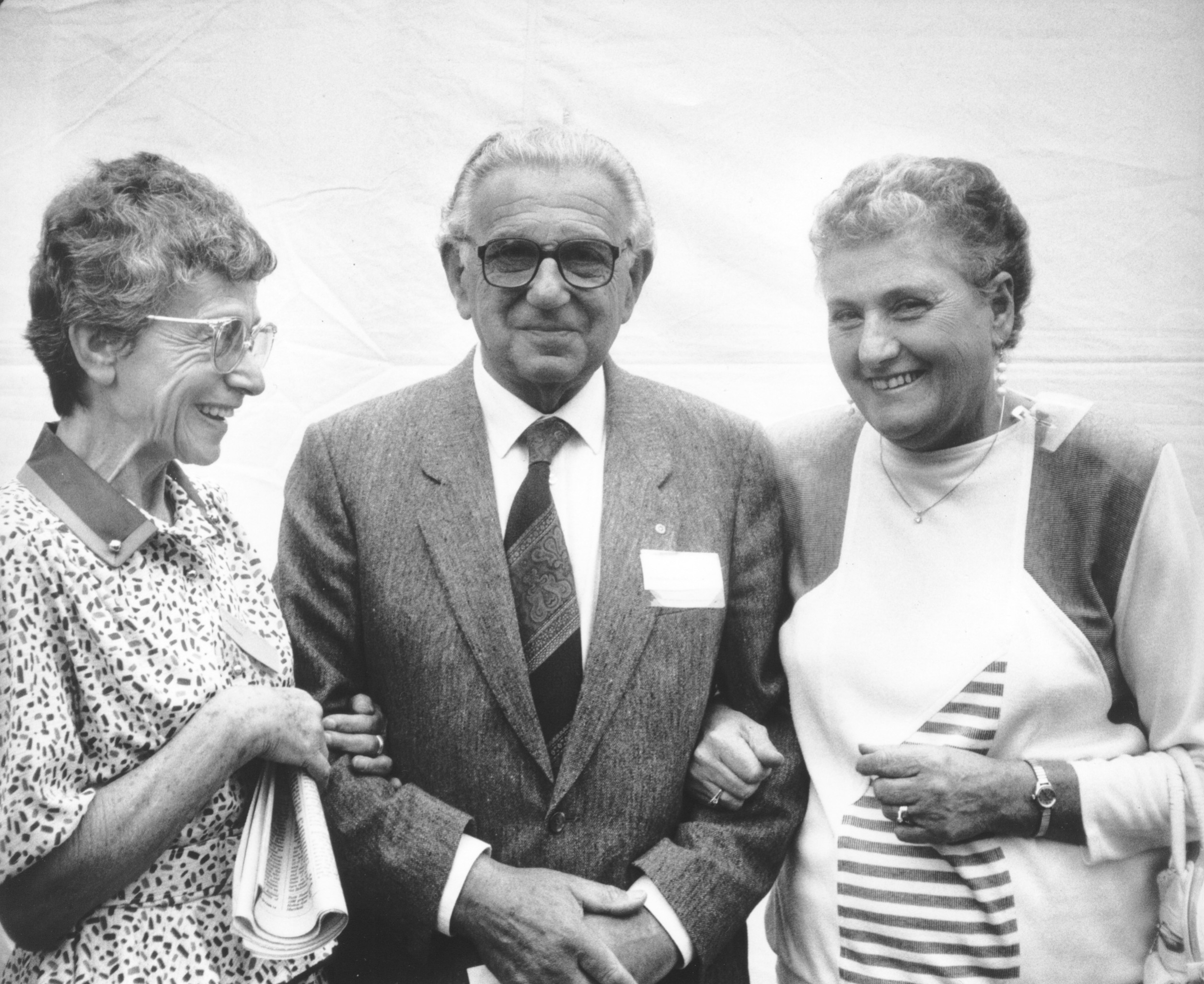Vera O’Brien
Journey of a Jew (World War II) – Footprints of Vera O’Brien, née Harth
Vera O’Brien was born on 7 February 1929 as Vera Harth in Vienna. Due to their Jewish heritage, she and her parents had to flee to Vera’s grandmother in Slovakia, where they had to go into hiding. Vera’s parents managed to save her life by sending her to England on a Kindertransport.
Vera O’Brien’s recollections have been edited by her grandchildren Clifford and Judy O’Brien.
My name is Vera, and this is my story.
I was born on 7 February 1929 to Carl and Margita Harth. I had a very happy childhood growing up in the beautiful city of Vienna. We lived in a beautifully furnished four-bedroom apartment located in Margareten, the 5th District.
As the only child of older parents I was treasured and had a wonderful life. They taught me to ice-skate when I was just three years old. We often went for long family walks through the woods, particularly in autumn when the crunchy leaves were deep on the ground. Swimming was another great source of pleasure and I was taught this by my beloved father. I think Mutti thought water was there for washing only; I cannot ever remember her being in it or even drinking it.
I attended a school where the students were mostly boys and I was a tomboy [1] with pigtail plaits. The boys played a prank on me, emulating something they had read in a comic book by dipping my pigtails in black ink; as a consequence my parents removed me to another school.
When l was eight years old, “Kristallnacht” [2] occurred. This ruined my life. “Kristallnacht“, (literally: “Crystal Night”, also called Night of Broken Glass), the night of 9 to 10 November, 1938, when Nazis violently attacked Jewish persons and property. Armed men stormed our precious home and used their bayonets to destroy our baby grand piano and ransack our belongings.
My father was both a pharmacist and business owner. He owned a chemist shop, the Drogerie [3] Hernalser Hauptstrasse 79 [4], which he was ordered to sell under duress for a fraction of its actual value in 1938.
My parents and I had to go into hiding.
One day my father came home unexpectedly and told my mother to hurry and pack clothes for us all and to bring her entire collection of jewellery. Herr Gerstenberger, who had arrived with my father, bundled us into his car and drove us away from Vienna, crossing the border into Slovakia. There we lived in hiding for nine months with my maternal grandmother, Freda Herzog, in a small village called Vrbové [5]. My father thought we would be safe, which in fact we were, but only for a short time.
Late one evening, there was a commotion. Men were shouting and ordering my grandmother around. Fortunately, she was very well known and respected. She managed to argue with these men long enough to enable my parents and I to get dressed. After giving me a quick cuddle, during which she managed to push a hair brush and an apple into my pocket, we were hustled out of the house and up the street at gunpoint. We were marched roughly into a group of frightened people where we were guarded and then herded on to a bus.
We drove for what seemed a very long time. When the bus finally stopped we were rudely and aggressively told to get out! Only to find ourselves abandoned in a remote forest clearing. The bus drove off rapidly and left us stranded in the middle of the night.
My father and a lady who had managed to conceal a small torch, decided to investigate our surroundings. Luckily, the tracks from the bus wheels were easily followed and by the light of a torch we all managed to get back to the main road. A vehicle driving towards us stopped and the driver asked if we were alright, we also had two very elderly ladies with us who were being helped along. He told us that we were very close to the border and gave us directions to get back to Bratislava [6]. Throughout the rest of that night we followed railway lines back until we reached a train station in Czechoslovakia.
Most of the people in the group decided to stay at the railway station to rest. My parents though, decided the best option was to run away and hide. A little later we looked back at the station from the top of a nearby hill and were frightened to see the people we had only moments ago left behind, herded back onto the buses once more. We walked on sadly and were fortunate enough to find a rabbi who hid us a few days. During this time I became very unwell and had to be left behind, too ill to be moved. My parents made their way to Piestany, a town near Vrbové.
I was later reunited with my parents and shortly after we moved to Prague, the capital of Czechoslovakia as the country was then called [7]. My parents and I survived for a little while in Prague, but the flow of money ceased with Hitler in power and so we had no money – not even enough for food. I was fed at a soup kitchen three times a week but sadly there was no food allocation for my parents. It was about this time my parents lost all contact with relatives and connections in both Vienna and Austria.
It was there, in Prague, that my father heard about Nicholas Winton [8], a young Englishman of about thirty who decided, at the risk of his own life, to save hundreds of Jewish children living on the Continent; starving through their struggle in the most atrocious of conditions. He and his friend came over from England and organised “Kindertransports” [9]; a secret and organised railway rescue effort set up to evacuate children to the safety of the United Kingdom. He later received a Knighthood for his actions. It was by “Kindertransport” that Nicholas managed to rescue 669 children. I was one of them.
My father made plans for our family to flee to England. I was to travel separately with the “Kindertransport” through the group known as the “Red Falcons” [10] and my parents were to travel separately with their valid visas dated to arrive in England on 8 September 1939.
Before they took me to the train station, my parents told me that I was going to go on a long holiday to England with lots of other children, including another girl near my age, Suzie Ehrman. To protect me from the horror of the situation they made it sound very exciting, the future held no fears for me at all, and as an only child I had longed for the company of other children. We were escaping and it was portrayed as wonderful fun! In June of 1939 we children were loaded onto the trains. I was smuggled to England as a refugee on Transport Six, passenger number 5580. I would never see my parents again.
We disembarked the trains at the “Hook of Holland” [11] where we boarded a large ship - again much excitement! No beds, just a great big mattress lining the whole of the deck. We slept there together until the next morning when we arrived in Harwich [12]. The English organisation sponsoring my journey and arrangements was called “The Woodcraft Folk” [13] located in Sheffield [14].
Upon our arrival, Suzie and I were taken to Lyons Corner House Restaurant [15]. After months of having very little food, our eyes lit up at the sight of what looked like European sausages and potatoes! However, no matter how hungry we were, we couldn’t enjoy the food. Yuck! It tasted of sawdust! We looked at each other as we tasted the ‘good old English sausage’.
I was met by Mr and Mrs Hull, the new foster parents whom I was to live with until my parents arrived. My parents never arrived. To our mutual dismay I remained with the Hulls for the remainder of the war. It was a sad and horrible time. I was misplaced and miserable. The Hull family wanted a sweet and gentle 10-year-old girl who liked embroidery. I, however, was tomboy who spoke no English and liked to climb trees. Consequently, my association with my “foster parents” was a disaster.
Throughout my seven and a half years in foster care I was beaten frequently, verbally abused and sexually molested. As I reflect upon these terrible times, I still remain grateful to the Hull family for accepting the responsibility of caring for an orphaned refugee from an entirely different culture.
In desperation to escape this abuse, I ran away and joined the British Army. It was 1946 and I was seventeen years old. I loved my life in the army; it offered a lot of freedom and a fair amount of responsibility. I reached the rank of Sergeant very quickly and became an instructor, met and married my husband John, who was also a Sergeant Instructor in the British Military at that time.
As the wife of a serving soldier my life was very interesting and varied, stationed in different countries and living in close proximity with people from different cultures. In 1959 we moved to New Zealand in the South Pacific and raised a family of six children, encompassing three boys and three girls. With the support of my husband I gathered the courage to return to Vienna in the 1980s to search for my ‘roots’. I sadly discovered that not one of my family members had survived, no cousins, no uncles, no aunties.
Margita Harth – MOTHER – murdered in Auschwitz, 1943.
Carl Harth – FATHER – murdered in Auschwitz, 1943.
My name is Vera, and I was once one of the 669 children evacuated in secret and smuggled out of Prague in 1939, escaping the annihilation that met my entire family in Nazi death camps during World War II.
Epilogue
The little refugee girl who landed on British shores became a community leader, with a revolving door open to visitors and family, who all knew food, bed and shelter were available. It is now July 2019, mid-winter in the Gatland Road Cemetery, south of Papakura, Auckland, New Zealand. Vera lies here at rest, peacefully with her husband. She died without closure on the fate of her Jewish family, but is survived by a large, strong and growing family in Australia and New Zealand. She is loved, missed and remembered.
[1] A girl who enjoys rough activities normally associated with boys.
[2] On 7 November 1938, a young Jew, Herschel Grynszpan, assassinated the German Ambassador’s secretary Ernst vom Rath in Paris, which two days later, on 9th to 10th November 1938, led to the so-called “Reichskristallnacht”, another term for the anti-Jewish pogrom or “November pogrom” all over the German Reich, deriving from the shattering of vast numbers of windowpanes during that night.
[3] German for drugstore.
[4] Part of the 17th District of Vienna.
[5] Small town in western Slovakia.
[6] Capital of present-day Slovakia.
[7] Following the German occupation in March 1939, Czechoslavakia became the so-called Protectorate of Bohemia and Moravia.
[8] Sir Nicholas George Winton (1909–2015) was a stockbroker of German Jewish ancestry, born and baptized in England, who saved the lives of 669 mostly Jewish children from Czechoslovakia by organising a rescue operation where the children were brought to Great Britain by train.
[9] Between December 1938 and September 1939, around 10,000 Jewish children and young people escaped from the German Reich to Great Britain on so-called Kindertransports.
[10] Rote Falken, a Socialist children’s and youth organisation, founded in Vienna in 1925.
[11] Harbour district of Rotterdam in southwestern Holland.
[12] Harbour city in eastern England.
[13] Movement for children and young people in Great Britain.
[14] Large city in South Yorkshire, England.
[15] Popular chain of restaurants in England.


